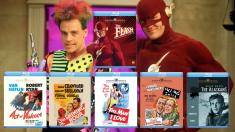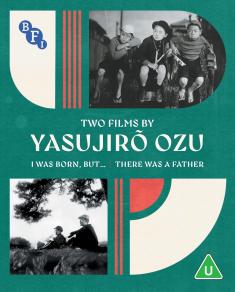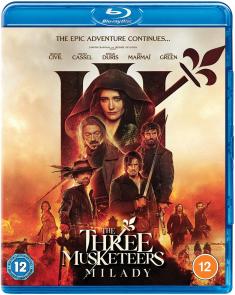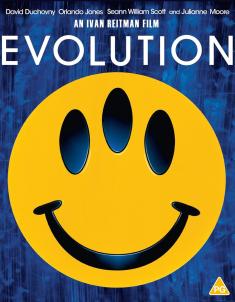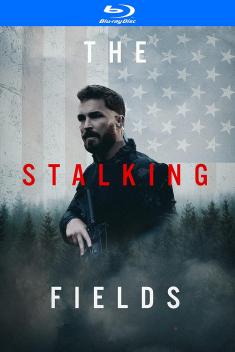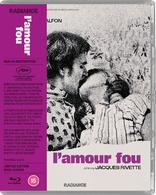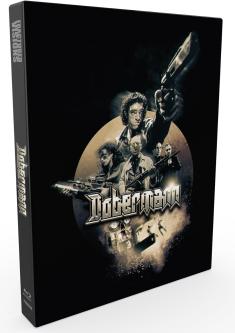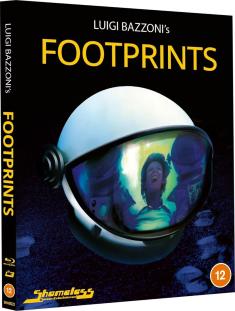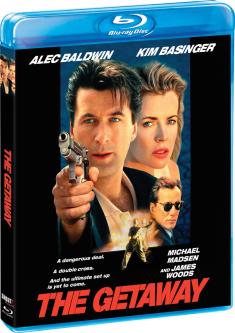Guess Who's Coming to Dinner
Overview -
Another classic from producing/directing powerhouse Stanley Kramer, Guess Who’s Coming to Dinner (1967) is a dramedy lightly treating the heaviest of subjects: race in America. Here, a crusading liberal couple – gorgeously played by that legendary team, Spencer Tracy (in his last film role) and Katharine Hepburn – find their beliefs tested when their daughter (Hepburn’s real-life niece, Katharine Houghton) arrives home with her new fiancé: a handsome, brilliant African American (the handsome, brilliant Sidney Poitier). Nominated for ten Oscars®, the film won two: Best Actress for Hepburn and Best Original Screenplay for William Rose.
Storyline: Our Reviewer's Take
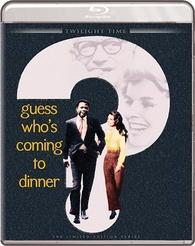
"Civil rights is one thing. This here is something else!"
Though it barely fazes anyone today, back in the mid-1960s, interracial marriage was more than "something else" to many close-minded, bigoted Americans who still treated blacks as second-class citizens. It was anathema. Illegal in 16 states and frowned upon in the other 34, mixed marriages fanned the fire of social prejudice and discrimination, making the prospect of such a union daunting at the very least. But love is blind (often color blind), and John Prentice (Sidney Poitier) and Joey Drayton (Katharine Houghton) refuse to see the very real problems they're sure to face if they forge ahead with their spur-of-the-moment nuptials after a whirlwind courtship in Hawaii. They arrive in San Francisco to reveal their relationship and future plans to their (stunned) parents and hope to secure their blessing, all in the course of one frenetic day filled with fraught encounters, fierce debates, and hand wringing and soul searching galore.
That's the crux of 'Guess Who's Coming to Dinner,' a heartwarming comedy about integrity, acceptance, and the strong bonds of family. But unlike most light fare, this comedy addresses what was then a taboo subject, and without ruffling too many feathers (for which it has been subsequently criticized) it shocked, enlightened, and moved audiences of its time. Of course, the issues the film tackles seem pretty tame today, but with all the racial strife currently afflicting our country in such locales as Ferguson and Baltimore, and national movements for tolerance and equality rising to a fever pitch, maybe we all could benefit from hearing the gospel producer-director Stanley Kramer and writer William Rose preach in this rather innocuous, non-offensive film. Many may find its ideas simplistic and trite, but its universal truths bear repeating.
Even in 1967, some dismissed 'Guess Who's Coming to Dinner' as a treacly fairy tale and manipulative message film that had no basis in reality. Sure, the idyllic romance between a dashing, highly educated, and phenomenally successful black widower and pert, pretty, headstrong white girl 14 years his junior who revels in her liberal ideals and flaunts a starry-eyed naïveté that becomes ever more annoying as the movie wears on looks good on celluloid and serves a necessary purpose. Yet in the context of its time, it's a fantasy. And that was fine for Kramer, who directed such socially conscious films as 'The Defiant Ones,' 'On the Beach,' 'Inherit the Wind,' 'Judgment at Nuremberg,' and 'Ship of Fools.' The only element he truly cared about was the film's central conflict, and his sole objective was to start a social dialogue that would hopefully initiate change. According to Kramer, John and Joey had to be perfect in every way so the only obstacle that could conceivably block their marriage would be skin color...which also would be the only point of contention between their respective parents. Muddying the waters with other problems would simply diffuse the message, which was the movie's entire raison d'être.
The rich white family, headed by newspaper publisher Matt Drayton (Spencer Tracy) and his wife Christina (Katharine Hepburn), view themselves as ardent liberals who support an array of progressive causes, but when one of those issues comes home to roost, just how accepting are they really? And on the flip side, the middle-class Prentices (Roy Glenn and Beah Richards) desperately strive for equality, but when it comes right down to it, do they really want to foster the progression of their race or are they suspicious of the white world and more comfortable in what that society deems to be their appointed station? Refreshingly, 'Guess Who's Coming to Dinner' examines both sides of the racial coin, showing us that blacks and whites mistrust each other equally, and racism - to various degrees - permeates both races.
Both sets of parents worry about the challenges their children will face. Mr. Drayton is concerned about prejudice, discrimination, safety, and how society will treat his future biracial grandchildren, while Mr. Prentice feels his son will be abandoning his race and turning his back on his heritage. In one of the film's most powerful and controversial moments, John expresses the current day's liberated ideology when he tells his father, "You think of yourself as a colored man. I think of myself as a man." (Though it's uncomfortable to hear such terms as "Negro" and "colored" bandied about over the course of the film, we must remember that was the accepted lingo of the times.) Though some in the black community took exception with John's dismissal of his roots and how they defined him, his point about equality struck a chord then and still resonates today.
What also resonates is the delicious and incomparable chemistry between Tracy and Hepburn, who bicker, spar, flirt, and intellectually connect better than any other screen team in Hollywood history. 'Guess Who's Coming to Dinner' would be their ninth and final co-starring vehicle over a period of 25 years, and is by far the most bittersweet. Tracy was very ill throughout shooting and only worked a few hours each day, but his vigorous, passionate performance belies any hint of suffering. (Sadly, he would pass away 17 days after filming wrapped.) Hepburn supported him every moment (their long-standing off-screen love affair was legendary), making one wonder whether the pools of tears that well up in her eyes consistently throughout the movie were part of her performance or a direct result of her realization that the man she cherished was slipping away. Whatever the reason, her luminous portrayal is quite affecting and earned Hepburn - after a 34-year draught - her second of four Best Actress Oscars.
In all, the film received a whopping 10 Academy Award nominations, including ones for Best Picture, Best Actor (Tracy), Best Director, Best Original Screenplay (which it won), Best Supporting Actor (Cecil Kellaway), and Best Supporting Actress (Beah Richards). Poitier, who files a superior performance brimming with conviction and punctuated by rare humor, also starred in 'To Sir, With Love' and 'In the Heat of the Night' the very same year, but shockingly didn't receive a nomination for anything. (Rod Steiger, his co-star in 'In the Heat of the Night' bested the late Tracy in the Best Actor category.) The only subpar portrayal comes from Houghton, the real-life niece of Hepburn, who was saddled with a sketchily drawn, goody-two-shoes role that lacks any gravitas. Houghton's mannerisms and vocal inflections greatly resemble her famous aunt's, and though at times she projects a natural air, a studied stiffness pervades her work.
And from a structural standpoint, there's a bit of stiffness to 'Guess Who's Coming to Dinner' as well. Some of it can be attributed to age, but stories created to convey a specific message often seem somewhat mechanical, and Kramer's film is no exception. Rose's script often resembles a stage play (the numerous "exterior" terrace scenes were obviously shot in a studio with an all-too-noticeable painted backdrop of the San Francisco skyline in the background), yet lacks the spontaneity and surprise factor that make theatrical productions exciting. Emotion, however, is palpable, and the sincerity and soulfulness emanating from all the characters ultimately win us over, sometimes against our better judgment.
Yet if not taken too seriously or literally, 'Guess Who's Coming to Dinner' is an absorbing and enjoyable film that celebrates the humanity that unites us all. As Kramer himself once said, this is a "love conquers all" tale, and though John and Joey may not conquer prejudice and discrimination, at least they take a stand against it. And that's a message that plays well in any age.
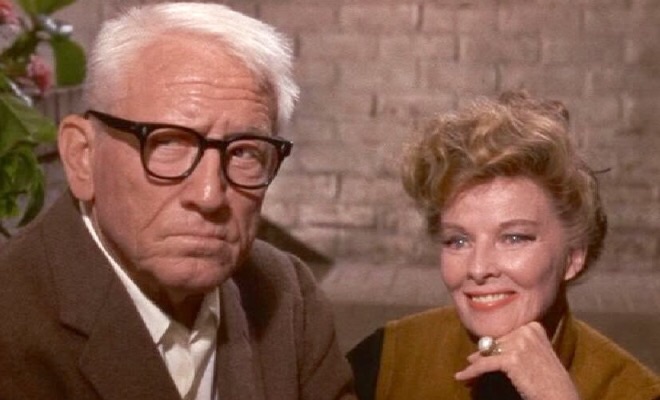
The Blu-ray: Vital Disc Stats
'Guess Who's Coming to Dinner' arrives on Blu-ray in a limited to 3,000 edition packaged in a standard case. An eight-page booklet, featuring an essay by film historian Julie Kirgo, color and black-and-white photos, and a reproduction of the film's poster art, is tucked inside the front cover. Video codec is 1080p/AVC MPEG-4 and audio is DTS-HD Master Audio 1.0. Once the disc is inserted into the player, the static menu without music immediately pops up; no previews or promos precede it.
Video Review

With apologies to the theme song of ‘Guess Who’s Coming to Dinner,’ that’s the glory of Blu-ray! Stanley Kramer’s social comedy looks spectacular in high definition, thanks to a stunning 1080p/AVC MPEG-4 transfer that’s wonderfully vibrant and crisp. Spencer Tracy reportedly grew impatient during shooting because lighting set-ups took forever, but the efforts of the crew paid off, and the resulting image brims with warmth, texture, and a palpable presence that heightens the intimacy of this interpersonal tale. Grain is gloriously evident, adding a lovely richness to the frame, and excellent contrast produces a fine sense of depth. Colors, especially the red of Hepburn’s wrap and Houghton’s pants, burst with saturation, blacks are inky, and the bright whites resist blooming. Patterns are rock solid and costume fabrics come across well. Rarely have I seen so many close-ups in a widescreen movie, but they’re all crystal clear, in particular those of Tracy, which exhibit every crease and fold in his weathered face with terrific precision. Filters were obviously used on Hepburn (who apparently was quite concerned about her appearance, as this was her first color film in a decade), but her striking beauty - even at age 60 - still lights up the screen.
A few nicks and marks show up intermittently, but only eagle eyes will notice them, and any digital doctoring escapes notice. Unfortunately, the picture is so clear the always fake-looking backdrops of the San Francisco skyline look even more artificial and call even more attention to the movie’s sterile soundstage look. But that’s a small price to pay for such an eye-popping transfer that will no doubt thrill fans of Tracy and Hepburn and aficionados of classic film. Great job, Sony!
Audio Review

The DTS-HD Master Audio 1.0 track supplies clear, well-modulated sound that exudes a surprising amount of fidelity. The bigger winner here is the music score by De Vol, which not only fills the room with ease, but also possesses wonderful resonance and depth of tone. All the dialogue is easy to comprehend, and no hiss or surface noise intrudes. A couple of minor pops and a hint of distortion now and then could be detected, but all in all, this is a solid, robust track that makes the most of mono. For those who want to fully enjoy De Vol's lush orchestrations, an isolated score track is also included in DTS-HD Master Audio 2.0.
Special Features

All the extras from the 2007 Sony DVD have been ported over to this Twilight Time release, and it's quite a bounty of high quality material.
-
Audio Commentary - Film historians Eddy Friedfeld, Lee Pfeiffer, and Paul Scrabo (why did Twilight Time ditch stalwarts Julie Kirgo and Nick Redman?) sit down for a lively, engaging commentary filled with insight, trivia, camaraderie, and good humor. The trio classifies 'Guess Who's Coming to Dinner' as a "daring yet comfortable" film that's "shot like a sitcom," but rises above its soundstage look. Among other things, we learn screenwriter William Rose specialized in scripts that took place over the course of a single day ('It's a Mad, Mad, Mad, Mad World' and 'The Russians Are Coming, the Russians Are Coming' are two other examples), both Mariette Hartley and Samantha Eggar were considered for the role of Joey (but Houghton's real-life connection to Hepburn was too big a selling point to ignore), and the normally confident Poitier was intimidated by his legendary co-stars. We also hear about the backlash against Poitier for portraying such lofty parts, and how the actor's feeling of responsibility toward his race influenced his career decisions. The film's varied critical reaction is also examined and several interesting anecdotes are relayed during this excellent discussion.
-
Introductions by Karen Kramer, Steven Spielberg, Tom Brokaw, and Quincy Jones (HD, 10 minutes) - A whopping four introductions are included on the disc (that's overkill in my book), and all must be accessed separately. Stanley Kramer's widow, Karen, recalls the social "explosion" that greeted the movie's release and lauds her husband's commitment to socially relevant subject matter. "He used film as a weapon against all the injustices of the world," she says. Spielberg also salutes Kramer's social conscience and impressive body of work, while Brokaw recalls the picture's impact on society at the time of its premiere. Finally, Jones continues the string of testimonials, calling 'Guess Who's Coming to Dinner' a "powerful commentary" that "took a lot of courage" to produce.
-
Featurette: "A Love Story of Today" (HD, 30 minutes) - Many noteworthy personalities, including directors Garry Marshall and Norman Jewison, actor Louis Gossett, Jr., Karen Kramer, and actress Katharine Houghton, who plays Joey Drayton, discuss the film's production, impact, and themes in this absorbing piece. (Stanley Kramer himself also participates via archival audio recordings and expounds on the "love conquers all" theme.) Karen Kramer remembers how the project was devised, while Houghton - who, by the way, does a great impression of her aunt, Katharine Hepburn - reveals she and Kramer received death threats after the film opened. We also learn Kramer had to convince a very ill Spencer Tracy to appear in the film, and when Columbia Pictures threatened to cancel the production because they refused to insure him (many believe the studio really had cold feet about the subject matter and used the insurance issue as an excuse to weasel out of its commitment), Kramer and Hepburn sacrificed their salaries to pay the premium so shooting could continue. Houghton notes Poitier was often criticized by the black community for portraying elevated citizens who didn't reflect the average African-American man in the U.S., and recalls how difficult it was for both of them to play "concept" roles that were created to foster a social message without much basis in reality. In addition, Gossett talks about the black characters' perspectives and their "reverse racism," and we discover why it was so important to make this story a comedy.
-
Featurette: "A Special Kind of Love" (HD, 17 minutes) - Equally involving, this featurette focuses more squarely on Hepburn and Tracy - his debilitating illness and her constant care and nurturing during shooting. Houghton recalls that Hepburn was tense throughout the production and often challenged Houghton about her interpretation of Joey. Hepburn, in an archival audio interview, calls herself "an odd cat," while Karen Kramer tearfully remembers Tracy's emotional final speech. And in a surprising admission, Houghton says 'Guess Who's Coming to Dinner' wasn't much fun to make because everyone on the set knew Tracy was dying.
-
Featurette: "Stanley Kramer: A Man's Search for Truth" (HD, 17 minutes) - The life and legacy of Stanley Kramer is chronicled in this reverential testimonial to the legendary director and producer, who's regarded as America's first independent filmmaker. Karen Kramer tells her late husband's story from Hell's Kitchen to Hollywood and claims he didn't take himself seriously and was often critical of his own work. Kramer himself speaks passionately about his commitment to his craft and responsibility to his country in a 1978 television interview, and such luminaries as Beau Bridges, Dick Van Dyke, Dennis Hopper, Alec Baldwin, Taylor Hackford, and Norman Jewison sing his praises. Though I would have welcomed a more comprehensive documentary about Kramer, this slick featurette gives viewers a taste of who he was and what he achieved, and hopefully will whet their appetite for more of his fine work.
-
Vintage TV Clip: "Stanley Kramer Accepts the Irving Thalberg Award" (HD, 2 minutes) - Producer Arthur Freed presents Kramer with this prestigious honor at the 1962 Academy Awards, following Kramer's triumph with 'Judgment at Nuremberg.' Kramer's acceptance speech is quite brief and, surprisingly, quite shallow.
-
"2007 Producer's Guild Stanley Kramer Award Presentation to 'An Inconvenient Truth'" (HD, 5 minutes) - Karen Kramer provides some background on this award before the actual clip from the ceremony, in which actor Harrison Ford honors for Vice President Al Gore for the socially conscious documentary, 'An Inconvenient Truth.' Both men salute Kramer's legacy and contribution to fostering social cinema.
-
Original Theatrical Trailer and Teaser (HD, 4 minutes) - The original preview, which runs 3 minutes, and original teaser, which runs 1 minute, round out the extras package.
Final Thoughts

Dated in some ways, yet still relevant in others, 'Guess Who's Coming to Dinner' pontificates about race relations and promotes its "can't we all just get along" viewpoint in a non-offensive manner laced with gentle comedy and lots of familial warmth. The king of social conscience films, Stanley Kramer, may not have had his finger on America's throbbing 1960s pulse, but he and screenwriter William Rose craft a palatable message movie about interracial marriage that's easy (maybe too easy) for the establishment to digest. Yet if you look beyond the social themes, you'll find exceptional performances from Spencer Tracy (in his last film), Sidney Poitier, and Katharine Hepburn that still ring true and resonate almost 40 years later, as well as an enjoyable story about family dynamics and the power of love. Twilight Time's Blu-ray presentation features top-notch video, solid audio, and all the supplements from the 2007 DVD release. Though this one-time hot-button film may have lost its heat, it still brims with emotion, and the points it makes are well worth revisiting during our current period of racial unrest and beyond. Highly recommended.
